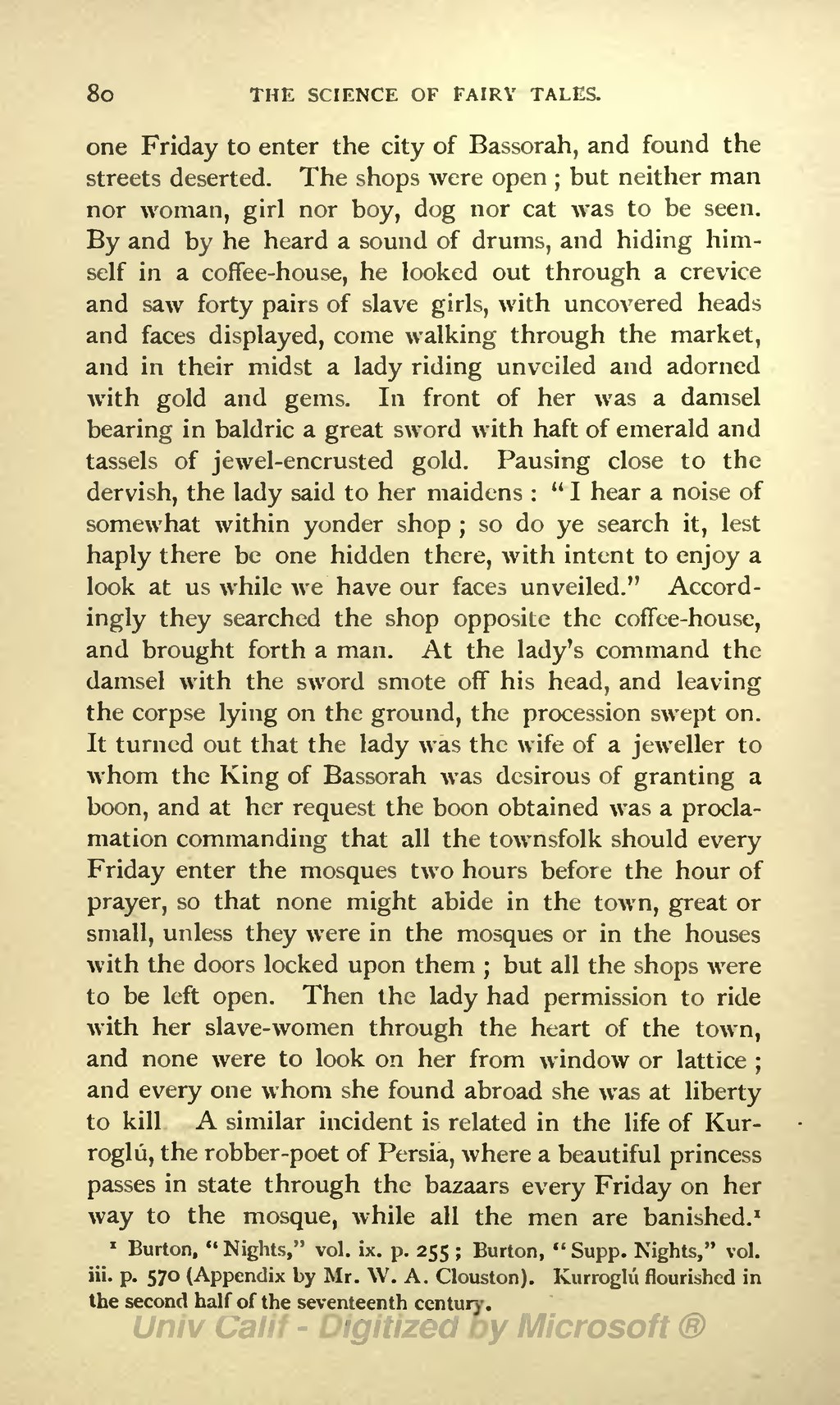one Friday to enter the city of Bassorah, and found the streets deserted. The shops were open; but neither man nor woman, girl nor boy, dog nor cat was to be seen. By and by he heard a sound of drums, and hiding himself in a coffee-house, he looked out through a crevice and saw forty pairs of slave girls, with uncovered heads and faces displayed, come walking through the market, and in their midst a lady riding unveiled and adorned with gold and gems. In front of her was a damsel bearing in baldric a great sword with haft of emerald and tassels of jewel-encrusted gold. Pausing close to the dervish, the lady said to her maidens: "I hear a noise of somewhat within yonder shop; so do ye search it, lest haply there be one hidden there, with intent to enjoy a look at us while we have our faces unveiled." Accordingly they searched the shop opposite the coffee-house, and brought forth a man. At the lady's command the damsel with the sword smote off his head, and leaving the corpse lying on the ground, the procession swept on. It turned out that the lady was the wife of a jeweller to whom the King of Bassorah was desirous of granting a boon, and at her request the boon obtained was a proclamation commanding that all the townsfolk should every Friday enter the mosques two hours before the hour of prayer, so that none might abide in the town, great or small, unless they were in the mosques or in the houses with the doors locked upon them; but all the shops were to be left open. Then the lady had permission to ride with her slave-women through the heart of the town, and none were to look on her from window or lattice; and every one whom she found abroad she was at liberty to kill. A similar incident is related in the life of Kurroglú, the robber-poet of Persia, where a beautiful princess passes in state through the bazaars every Friday on her way to the mosque, while all the men are banished.[1]
- ↑ Burton, "Nights," vol. ix. p. 255; Burton, "Supp. Nights," vol. iii. p. 570 (Appendix by Mr. W. A. Clouston). Kurroglú flourished in the second half of the seventeenth century.

